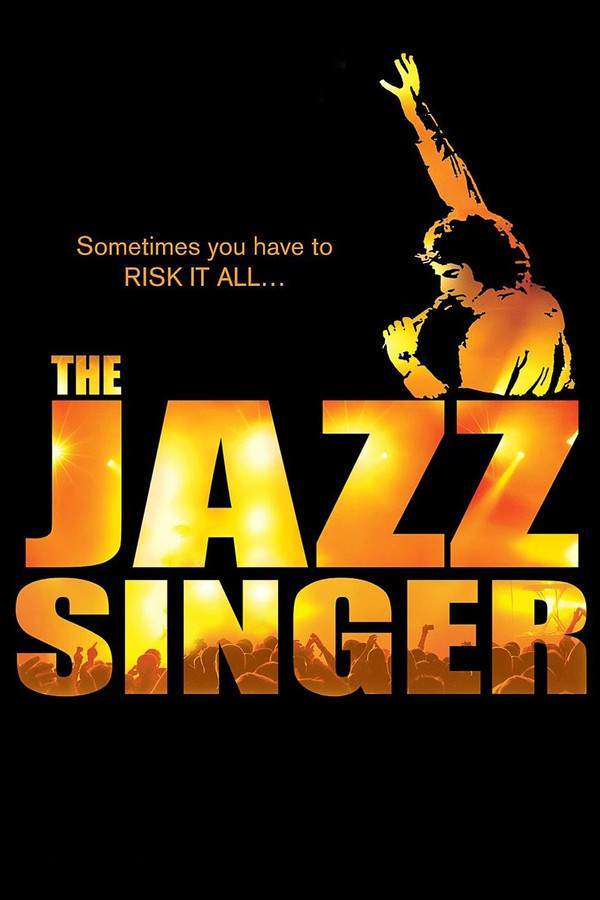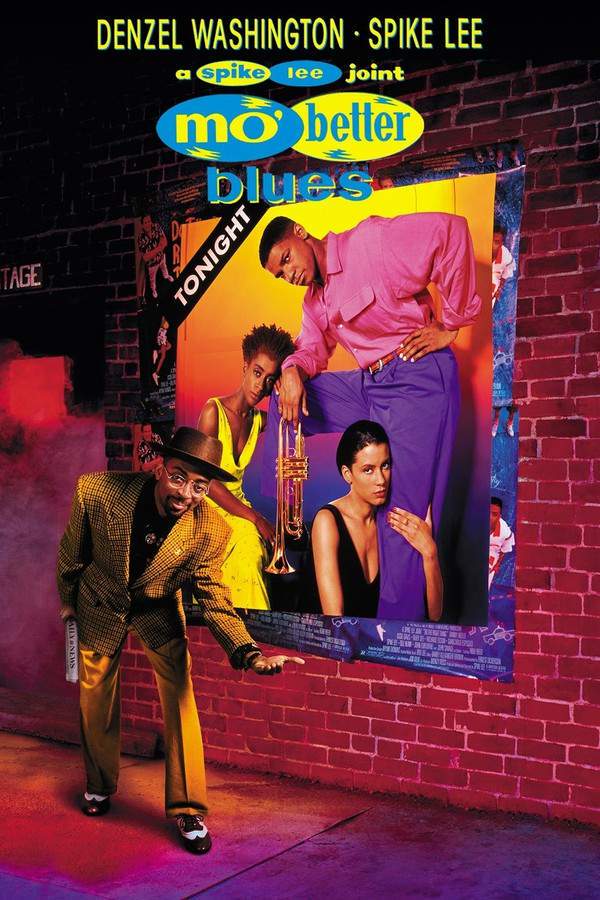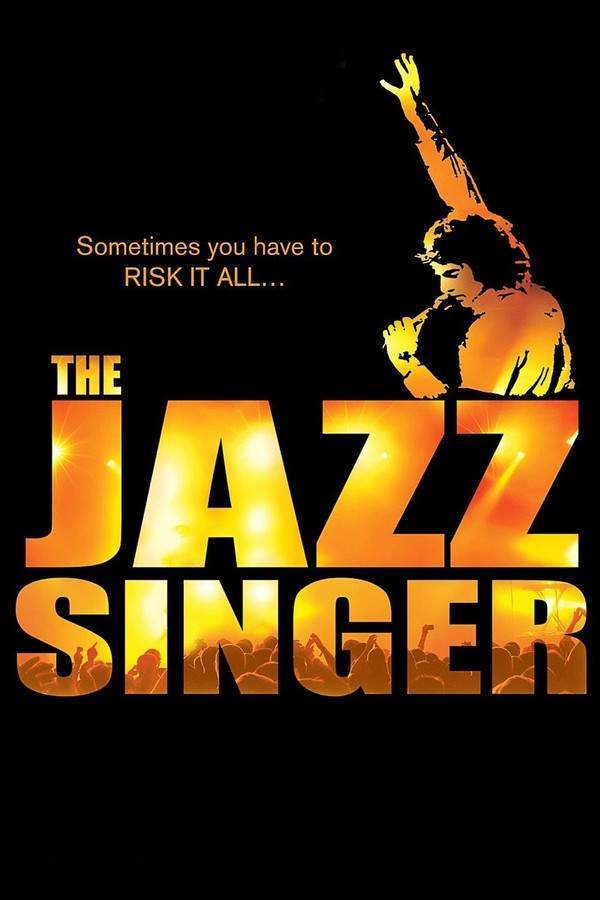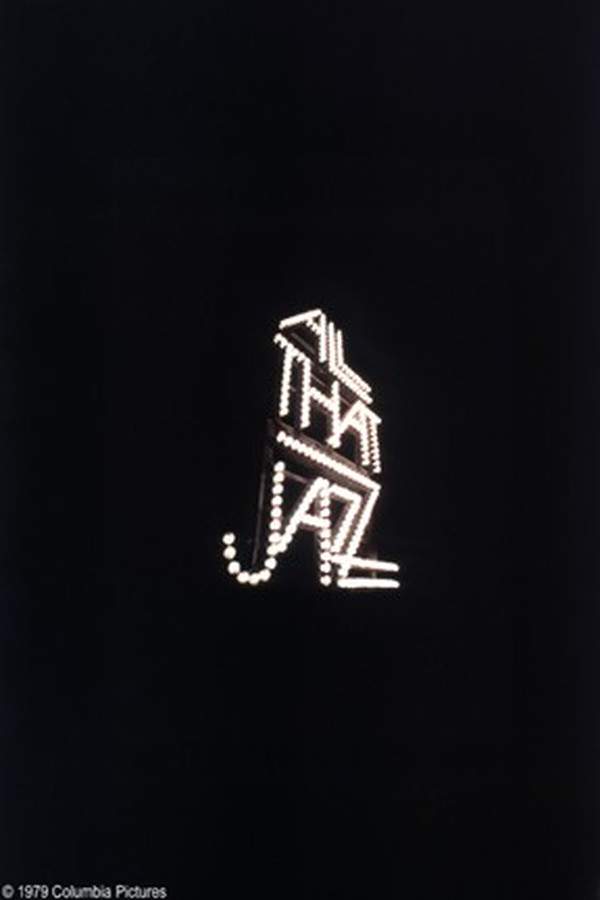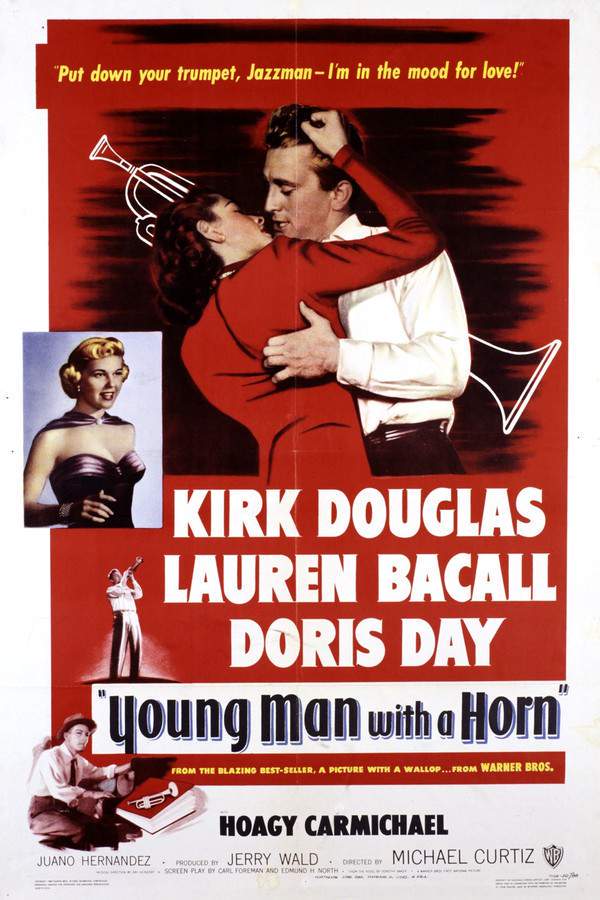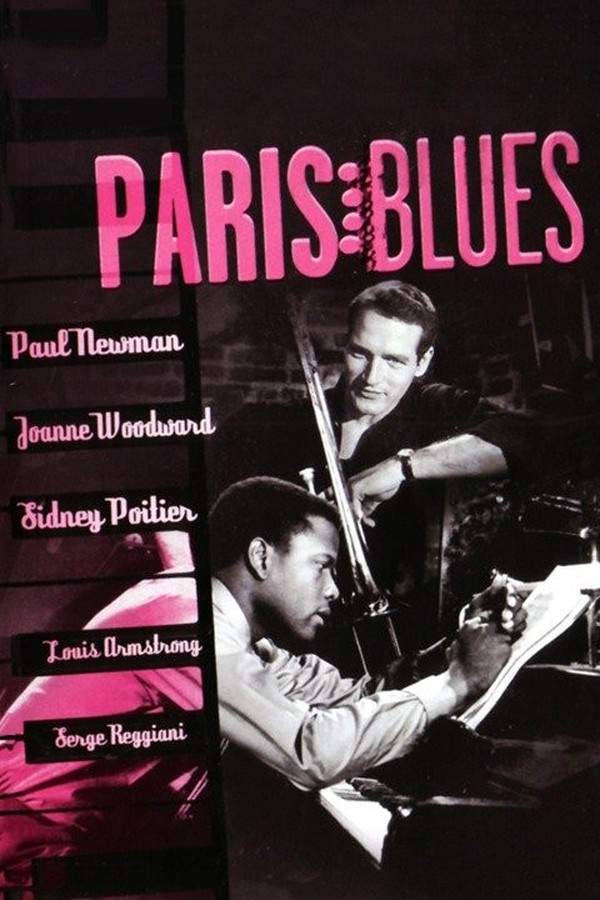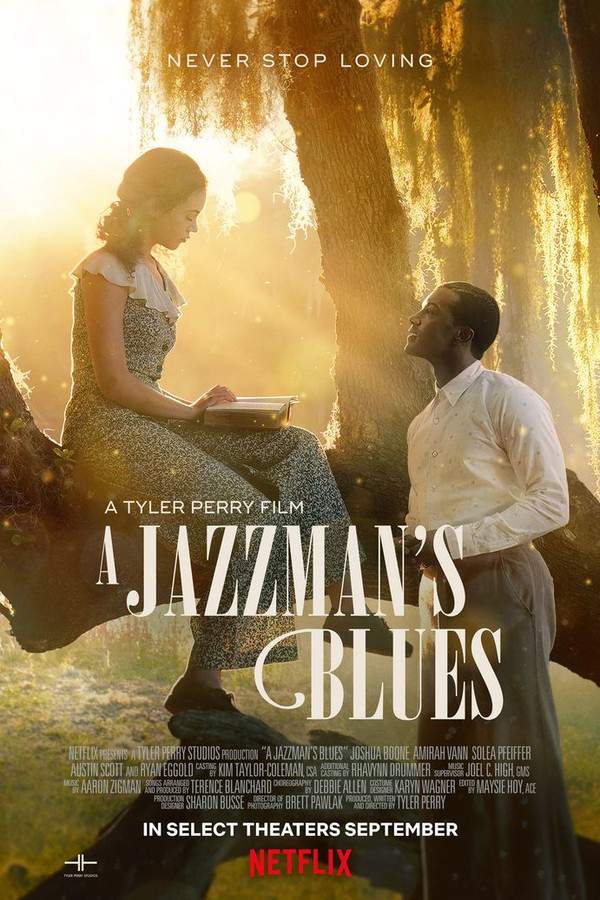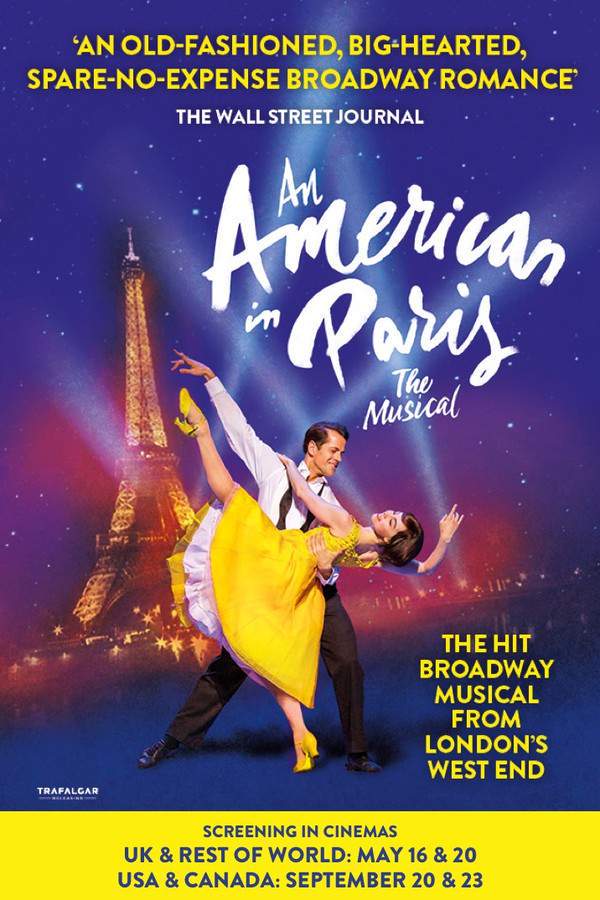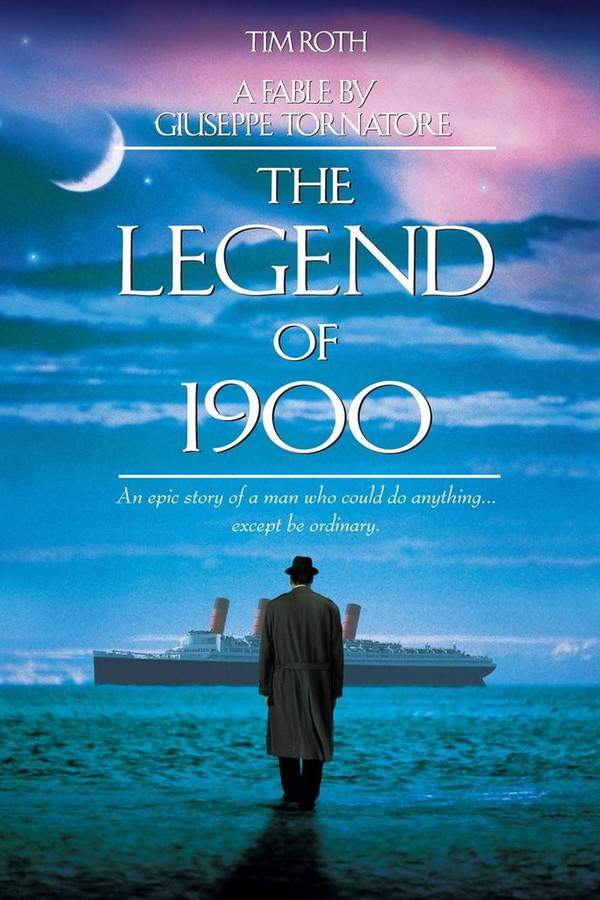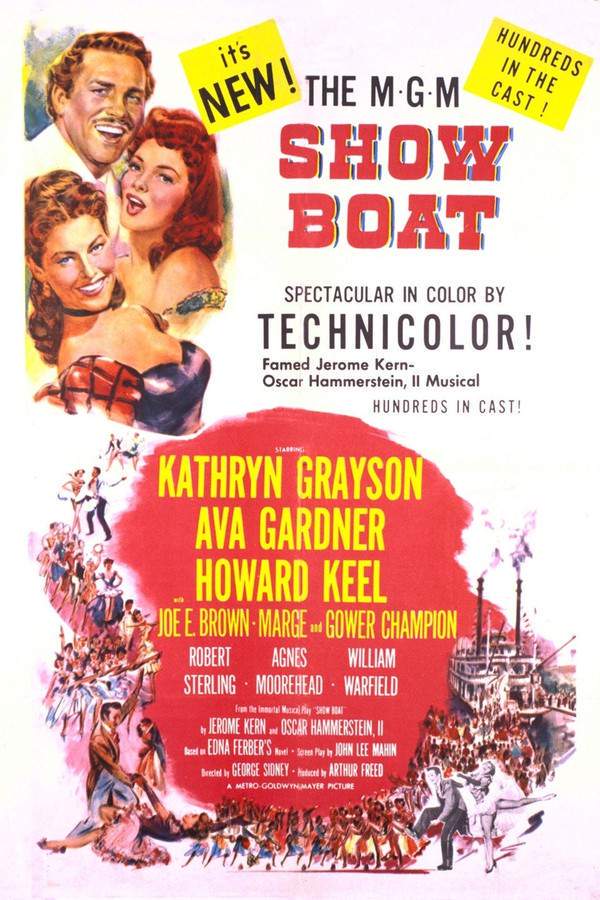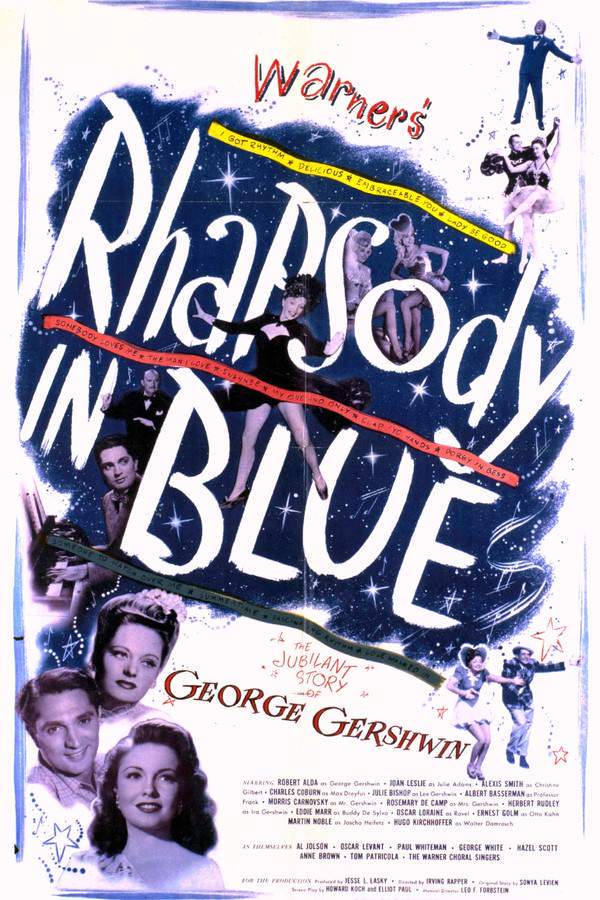
Rhapsody in Blue 1945
Directed by

Irving Rapper
Made by

Warner Bros.
Rhapsody in Blue Plot Summary
Read the complete plot summary and ending explained for Rhapsody in Blue (1945). From turning points to emotional moments, uncover what really happened and why it matters.
In the vibrant neighborhood of Brooklyn, New York, an upright piano is being hoisted into the home of the Gershwin family, consisting of Morris, Rose, and their two sons, Ira Gershwin and young George Gershwin. Initially, Morris excitedly informs Ira about his piano lessons, but Ira expresses disdain for the idea. Their conversation takes a turn when they hear George playing a captivating tune on the piano. Impressed by his talent, Morris and Rose promptly decide to enroll George in lessons instead.
As George grows, he becomes increasingly engrossed in the bustling music scene of Tin Pan Alley. He navigates through various music teachers before settling with Prof. Franck. George showcases his talent for composing Jazz, receiving encouragement from Prof. Franck to follow his passion. He begins crafting numerous songs, but success remains elusive initially. Eventually, he secures a position as a pianist for a show featuring Harpo Marx. During the performance, he faces mockery on stage and, feeling dejected, he storms out of the theater with Ira right behind him.
Determined to pursue his dreams, George transitions to a job as a song plugger, playing tunes to potential listeners. It is here he crosses paths with Julie Adams, a talented Broadway singer. Struck by her exceptional voice, George suggests she sing his composition, “Swanee.” Julie enthusiastically agrees, and this leads George to offer her his copy, alongside the other pieces he has. Soon after, he calls his boss to resign from his job.
With newfound determination, George heads to pitch his song to Max Dreyfus. While waiting, he unexpectedly meets Oscar Levant, who becomes his lifelong friend. After demonstrating his song to Max, George garners positive feedback, convincing Max to get famed singer Al Jolson to perform it. Al’s extraordinary rendition generates a wave of applause, inspiring George to delve into writing his own musical, casting Julie as his leading lady because he believes she is perfect for the role. Despite the initial flop of their show, George’s perseverance pays off as his musicals gain popularity, with Julie consistently in the spotlight.
As their careers flourish, Julie begins to develop feelings for George, although he remains blissfully unaware of her affections. During a backstage encounter with bandleader Paul Whiteman, George is presented with the opportunity to create a unique show that fuses Jazz with European Classical music. Tensions arise at a dinner party between Prof. Franck and Max concerning this idea, with Max urging George to stick to writing popular hits while Franck encourages him to follow his heart. Ultimately, George embraces the challenge and composes Rhapsody in Blue. He performs his piece at the premiere, where luminaries like Igor Stravinsky and Sergei Rachmaninoff are in attendance, and his work is met with widespread acclaim, marking a significant milestone in his career.
After the successful performance, George attempts to visit Prof. Franck, only to discover that the professor is gravely ill and unable to attend. Shortly after, he is approached to write a Concerto for the New York Philharmonic, to be showcased at Carnegie Hall; however, George hesitates due to his perceived lack of experience with classical composition. As he continues to juggle musicals, he notices Ira’s developing skill as a lyricist and entrusts him with the lyrics for his next show, Lady be Good, which becomes a phenomenal success.
Seeking further inspiration for his concerto, George travels to Paris where he hears his own song, Fascinating Rhythm, being played in a lively nightclub. During his visit, he meets Christine Gilbert, and they quickly develop a romantic relationship filled with delightful adventures. When George invites Christine back to America for a party, Julie’s heart sinks upon seeing them together. At the gathering, George and Ira affectionately nickname each other “Mr. Words” and “Mr. Music.” During a special moment, George plays The Man I Love on the piano, accompanied by Julie’s singing. However, overwhelmed with emotions, Julie suddenly departs without a word, leaving George bewildered.
In the aftermath, George becomes captivated by painting and begins to dedicate time to the canvas. One day, Christine walks in on him and professes her love, prompting George to dream of a shared future in a penthouse in New York. Dismayed, Julie remarks that he “sounds like his songs,” and after a tense exchange, she leaves, her heart aching from the longing that remains unresolved.
Rhapsody in Blue Timeline
Follow the complete movie timeline of Rhapsody in Blue (1945) with every major event in chronological order. Great for understanding complex plots and story progression.
Piano Arrival
In Brooklyn, New York, a grand piano is being delivered to the home of the Gershwins, where Morris and Rose live with their two sons, Ira and George. Morris excitedly informs Ira about his piano lessons, which Ira reluctantly accepts.
George's Musical Talent Emerges
As George grows older, he begins showing a remarkable talent for music, particularly influenced by the popular tunes of Tin Pan Alley. This newfound passion prompts Morris and Rose to enroll him in piano lessons under the tutelage of various instructors.
Prof. Franck's Guidance
George eventually studies music under Prof. Franck, who encourages him to pursue jazz while affirming his musical prowess. Inspired by this support, George starts writing his own songs, eager to make a mark in the music world.
Struggles in Showbiz
George's career begins to take shape when he gets a job as a pianist for a show featuring Harpo Marx. However, his confidence is shattered when he is mockingly treated onstage, leading him to leave the theater in frustration, accompanied by his brother Ira.
Meeting Julie Adams
While working as a song plugger, George encounters Julie Adams, a talented Broadway singer. He presents her with his song 'Swanee,' which she admires, leading him to quit his job and pursue music that truly resonates with him.
Pitching to Max Dreyfus
George finds the courage to pitch his music to Max Dreyfus, where he crosses paths with Oscar Levant, who becomes a close friend. Impressed by George's work, Max arranges for the renowned Al Jolson to perform one of George's songs, sparking a turning point in his career.
Success with Al Jolson
Al Jolson performs George's song to massive applause, igniting George's ambition to write his own musical. He casts Julie as the lead, but despite his enthusiasm, their first show fails to garner success, although George remains determined.
The Fusion of Jazz and Classical
Bandleader Paul Whiteman approaches George to create a show that merges jazz with classical music, leading to a heated debate between Prof. Franck and Max Dreyfus at a dinner party. Ultimately, George embraces the challenge and composes 'Rhapsody in Blue.'
Premiere of Rhapsody in Blue
During the premiere of 'Rhapsody in Blue,' George performs to an audience that includes legends like Igor Stravinsky and Sergei Rachmaninoff. This performance receives overwhelming applause, solidifying his reputation as a leading composer.
Unexpected Loss
After the success of 'Rhapsody in Blue,' George visits Prof. Franck, only to learn of his mentor's passing. This news weighs heavily on George, who reflects on his journey and the influence Franck had on his music career.
Collaboration with Ira
George discovers that Ira has aspirations of becoming a lyricist, and they decide to collaborate for a musical titled 'Lady Be Good.' Their synergy results in a smash hit, showcasing the power of their brotherly partnership.
Inspiration in Paris
To seek inspiration for his concerto, George travels to Paris, where he encounters his song 'Fascinating Rhythm' being played in a local nightclub. This trip not only reignites his creativity but also leads to a blossoming romance with Christine Gilbert.
Conflict of Emotions
Back in America, George hosts a party where both Christine and Julie are present, leading to an emotional confrontation. Julie, feeling rejected, realizes her love for George and is heartbroken when she witnesses his affection towards Christine.
George's Artistic Growth
Amid his music career, George becomes enamored with painting and starts creating artwork regularly. This newfound passion distracts him from his personal relationships, causing tension between him and Julie as she observes his commitment to his art.
Heartbreak and Ambition
In a poignant moment, Christine professes her love for George while he envisions their future together. However, Julie's heartbreak leads her to confront George, who is oblivious to the emotional turmoil he has caused in both women's lives.
Rhapsody in Blue Characters
Explore all characters from Rhapsody in Blue (1945). Get detailed profiles with their roles, arcs, and key relationships explained.
George Gershwin
George Gershwin is portrayed as a passionate and talented composer who seeks to carve his niche in the music world. His character is defined by his relentless drive to blend jazz with classical influences, illustrating both his creativity and insecurity. Throughout the film, his personal relationships become intertwined with his artistic journey, impacting both his music and his emotional well-being.
Julie Adams
Julie Adams is a Broadway singer who embodies talent and ambition. Her affection for George adds complexity to her character, as she navigates her own career while dealing with her feelings for him. Julie's emotional struggles highlight the sacrifices artists make for love and the challenges faced in the pursuit of success.
Ira Gershwin
Ira Gershwin, George's brother, represents the lyrical counterpart to George's musical talent. His keen ability with words facilitates their creative collaboration, contributing to George's hits. Ira's character portrays loyalty and support, as he navigates his own aspirations while championing George's work.
Christine Gilbert
Christine Gilbert is a significant love interest for George, representing a new phase in his life and career. Her character brings warmth and inspiration, yet her presence serves as a source of conflict for both Julie and George. Christine illustrates how personal relationships can influence an artist's work and emotional landscape.
Rhapsody in Blue Settings
Learn where and when Rhapsody in Blue (1945) takes place. Explore the film’s settings, era, and how they shape the narrative.
Time period
Early 20th Century
Set in the early 20th century, this period was marked by significant developments in music, art, and culture. The rise of jazz intertwined with classical music during this time influenced many artists, including Gershwin, paving the way for innovative expressions in the music industry.
Location
Brooklyn, New York, Paris
The story unfolds in Brooklyn, New York, a vibrant borough known for its cultural diversity and musical heritage. It transitions to Paris, a city famed for its romantic ambiance and artistic influence, where George Gershwin seeks inspiration for his concerto. Both locations represent significant chapters in George's journey as a composer.
Rhapsody in Blue Themes
Discover the main themes in Rhapsody in Blue (1945). Analyze the deeper meanings, emotional layers, and social commentary behind the film.
🎶
Music
Music serves as the central theme of the film, illustrating George's evolution from a budding pianist to a celebrated composer. It showcases the fusion of jazz and classical styles, highlighting the beauty of artistic innovation and collaboration. The emotional power of music is further emphasized through George's complex relationships with Julie and Christine, reflecting how music intertwines with love and ambition.
❤️
Love
Love is a recurring theme as it manifests in various forms throughout the movie. George's relationships with Julie and Christine depict the struggles and sacrifices made for love. The tension between personal desires and professional aspirations adds depth to the narrative, highlighting how love can inspire and complicate artistic pursuits.
🌟
Ambition
Ambition drives George's character as he navigates his path to success in the competitive world of music. His determination is portrayed through his relentless pursuit of excellence, as he grapples with self-doubt and professional setbacks. The film emphasizes the importance of perseverance in achieving one's dreams, regardless of the challenges encountered.
Rhapsody in Blue Spoiler-Free Summary
Discover the spoiler-free summary of Rhapsody in Blue (1945). Get a concise overview without any spoilers.
In the bustling streets of early‑20th‑century Brooklyn, a modest piano arrives in the modest home of a family whose rhythm is already humming with possibility. George Gershwin, a curious boy with an innate ear for melody, discovers his voice amid the clatter of tin‑pan alley and the glow of vaudeville marquees. Surrounded by a supportive mother, an entrepreneurial father, and his older brother, Ira Gershwin, who balances skepticism with encouragement, George feels the restless pull of a world where jazz’s improvisational spark meets the polished allure of popular song. The film paints the era as a kaleidoscope of speakeasies, bustling publishing houses, and restless concert halls, each a stage for a young composer eager to rewrite the rules of American music.
As George steps beyond his family’s kitchen, he encounters the vibrant tapestry of mentors and collaborators who shape his artistic journey. Prof. Franck represents the classical rigor that tempts him to explore deeper structures, while the savvy publisher Max Dreyfus offers the commercial pathways of Tin Pan Alley. In the smoky backrooms of Broadway, a talented singer named Julie Adams becomes both muse and confidante, their chemistry hinting at the complex interplay of personal longing and professional ambition. Meanwhile, friendships forged with fellow musicians—including the witty Oscar Levant—provide a sounding board for his daring ideas, and encounters with industry giants like Al Jolson and Paul Whiteman suggest that his aspirations might reach far beyond the neighborhoods that raised him.
Against this rich backdrop, the film’s tone balances the exuberant optimism of a city in musical metamorphosis with the intimate doubts that accompany any creator’s quest for originality. The narrative teases the inevitable tension between staying true to one’s roots and daring to fuse disparate traditions—a conflict that will shape George’s emerging legacy. Through luminous set pieces, a soundtrack that feels both period‑appropriate and timeless, and a focus on the relationships that spur his imagination, the story invites viewers to feel the pulse of an era and anticipate the revolutionary works that lie just over the horizon.
Movies with Similar Twists and Themes
Uncover films that echo the narrative beats, emotional arcs, or dramatic twists of the one you're exploring. These recommendations are handpicked based on story depth, thematic resonance, and spoiler-worthy moments — perfect for fans who crave more of the same intrigue.
Featured on this page

What's After the Movie?
Not sure whether to stay after the credits? Find out!
Explore Our Movie Platform
New Movie Releases (2025)
Famous Movie Actors
Top Film Production Studios
Movie Plot Summaries & Endings
Major Movie Awards & Winners
Best Concert Films & Music Documentaries
Movie Collections and Curated Lists
© 2025 What's After the Movie. All rights reserved.


